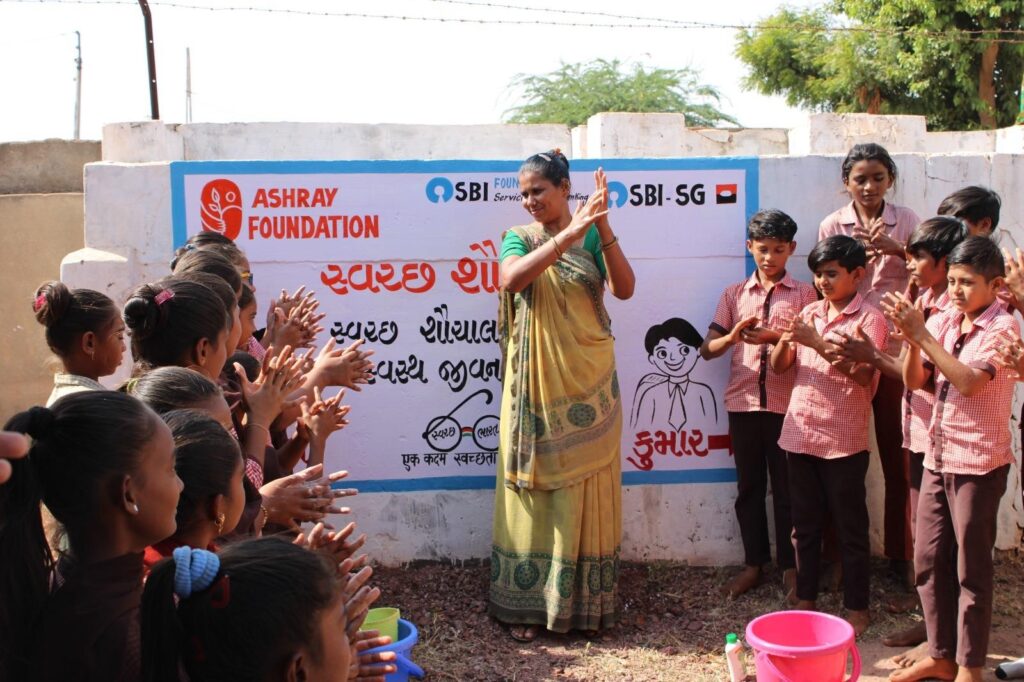MY RIGHTS FOR MY RIGHT HEALTH

With the right “rights,” the perfect healthcare is just around the corner.
Author: Srushti Sonawane
“I have a right to move freely, to express myself vivaciously, and to live a life enriched with the riches of life!” is only so far we have been told or cared to know about. The rights of an individual are predetermined by personal interest. But in the intricately woven textile of all the rights known to every individual, how often does one ponder upon their collective rights individually? In the words of John F. Kennedy, “The rights of every man are diminished when the rights of one man are threatened,” which makes us rethink our cumulative responsibilities as responsible citizens. Beyond spreading the word of awareness through our keyboards, the live action that goes into making a bigger impact has been waning without making any radical shifts. In a world where health inequalities persist and access to healthcare remains a privilege rather than a right for many, “My Health, My Rights” serves as a rallying cry for advocacy, action, and accountability. SDG 3, which focuses on all major health priorities such as reproductive, maternal, new-born, child, and adolescent health; communicable and non-communicable diseases; universal health coverage; and access for all to safe, effective, quality, and affordable medicines and vaccines, has been a goal diligently emphasized at the Ashray Foundation. Amongst all the other rights that we are so fervent about evaluating, we are often at back-foot when it comes to showing that inquisitiveness while learning about our health rights. With WHO’s theme for this World Health Day being “My Health, My Right,” we must take this as an opportunity to enlighten ourselves with our fundamental healthcare rights, advocating rights for one and rights for all. Take a tour through our work under the banner of health and hygiene and the initiatives led by us, moving the needle in the right direction.
Due to limited access to healthcare, inadequate awareness, and other health disparities, along with the cumbersome pressure of economic burdens in rural areas, the taluka of Santalpur suffered a grave ordeal in accessing quality healthcare. The villagers in Patan had to travel long distances to reach the nearest health facility, adding to their financial liabilities without a promise to fulfill their rudimentary needs. With the deployment of Sanjeevani’s ‘Clinic on Wheels’, the vision of primary doorstep healthcare delivery through its Mobile Medical Units (MMU) was a threshold for something revolutionary for the people of Patan. With MMU’s implementation, more than 40 villages have experienced positive impacts, paving the way to address healthcare disparities, offer educational opportunities, and enhance sanitation, hygiene, and reproductive health through tailored initiatives and the involvement of the community. Ashray has been diligently working towards transforming this vision into victory for many other districts like Dahod, Narmada, Lahaul and Spiti, having around 25,000 beneficiaries. Extending this dream to other parts of the country, over 26 villages in Mandi, Himachal Pradesh, have reaped the perks of the same. With a whopping 900+ functioning MMUs, Ashray has been keeping its promise of establishing a hearty and healthy ecosystem. Complying with the standards laid down by the Operational Guide for MMU by the Ministry of Health and Family Welfare and the policies laid down in The National Health Policy, 2017, we are successfully raising tides to lift every disadvantaged person, covering their primary healthcare and preventive health measures.
Oftentimes, with the assistance of high praise, women are eulogized for their strength against the forces of nature. But does a woman truly have to endure the agonies of her womanhood every waking day? Certainly not. In the words of Diane Mariechild, “A woman is the full circle. Within her is the power to create, nurture, and transform,” yet a woman is constantly reminded of her toils as though she is made to withstand them. With the tides turning for women in healthcare, we too have emboldened ourselves in that direction. With our many awareness sessions and camps, we have touched the lives of multiple women and young girls by educating them about their health and covering various concerns like breastfeeding, postnatal counseling, cervical cancer, menstruation, and breast cancer. Talking about the provisions ad rem postnatal care, within the parasol of the National Health Mission, the Janani Shishu Suraksha Karyakram (JSSK) entitles all pregnant women delivering in public health institutions to absolutely free and no expense delivery, including cesarean sections. With women’s healthcare at the forefront, Ashray actively shares such benevolent visions, rising to the occasion of promoting wellness.
In an ideal world, it is suggested that ignorance can truly be blissful. What one might fail to take into account is that way too much ignorance can amount to some perilous complacency. HIV (Human immunodeficiency virus) is one such concern that must not go unattended by every responsible citizen. Nelson Mandela, while addressing the misfortunes of an HIV warrior, aptly said that “AIDS is no longer just a disease; it is a human rights issue.” We believe a grave virus like HIV should constantly be treated with great care and sensitivity. With our HI(gh)(Fi)V(e) Initiative, Ashray has been a glimmer of hope for vulnerable communities, including female sex workers, transgender sex workers, men having sex with men, and persons who inject drugs. Conducting over 2,500 HIV tests successfully and promoting good sexual health through mass media interventions, counseling sessions, focus group discussions, and street plays, we have carried the baton of making a safe space for the voiceless, hearing their concerns, and taking an actionable step forward. With solicitous legislation like the HIV/AIDS (Prevention and Control) Act of 2017, it has reinforced organizations like Ashray Foundation for creating stigma-free healthcare environments, promoting HIV/AIDS awareness and prevention initiatives, and maintaining hygiene standards in healthcare facilities.
Nutrition is not a luxury but a necessity to sustain life in the entirety of its wholesomeness. In Michael Pollan’s words, the key to good nutrition is “Don’t eat anything your great-grandmother wouldn’t recognize as food,” and rightly so, it is essential to check in on one’s food consumption just like any other pharmaceutical intake. With multiple CSR collaborations, we have managed to organize several awareness sessions as a part of planting the seeds of awareness on the importance of nutrition. Keeping the objectives laid down in the 2013 National Food Security Act (NFSA) in mind, we aim to ensure food and nutrition security for the vulnerable through its associated schemes and programs, making access to food a legal right.
The battles fought within are the ones that go unspoken. As disheartening as that may be to sit with, mental health warriors do fight an interminable war with themselves and oftentimes choose silence over dialogue. Glenn Close summed it appositely about how mental health must truly be dealt with by saying, “What mental health needs is more sunlight, more candour, and more unashamed conversation.” With the incessant aid of SHGs (self-help groups) and our acolytes on the field, we were able to catalyze the conversation on #MentalHealthMatters. The Mental Healthcare Act of 2017 ensures the rights of individuals with mental illnesses and mandates accessible mental healthcare services, breaking the silence over a much-needed issue.
The first step towards any foundational change is to concede its necessity. In Thich Nhat Hanh’s words, “Awareness is like the sun. When it shines on things, they are transformed,” whichconcludes that change stems from the seed of awareness. As vigilant citizens, we must keep reminding ourselves about the rights bestowed upon us, not as a privilege but as a commemoration of our duties to exercise them wisely. Recognizing healthcare as a fundamental right of every individual goes beyond its very infrastructure and policies. Beyond financial disparities, accessing essential healthcare must be ensured under universal healthcare coverage. Digital health solutions enable remote consultations, facilitate medical records management, and enhance disease surveillance systems, and can hence improve healthcare access and efficiency by harnessing technology to its maximum potential. Busting myths on sensitized topics like menstrual hygiene and HIV/AIDS is the need of the hour, hence maintaining one’s bodily autonomy and integrity. Rallying the troops of the right to privacy, one must warily exercise their right to privacy and confidentiality of their health information, treatment, and informed consent. Ashray Foundation calls in one and all to come forth this World Health Day and resolutely exercise “their health, their rights.”
